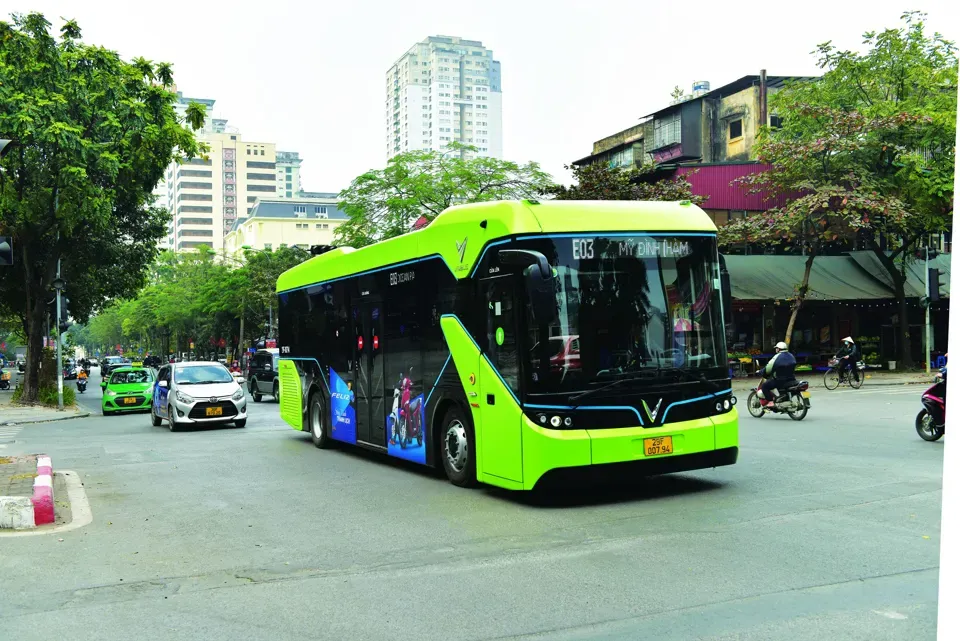Hanoi's bus fleet will be fully green by 2030
Replacing buses with green ones is an important step in Hanoi’s push for sustainable public transportation, especially as local people show increasing interest in electric vehicles and metro lines.
THE HANOI TIMES — Hanoi plans to replace all of its buses with those using electricity or green energy by 2030, a pivotal step to reduce greenhouse gas emissions.
The transition will take place in two phases. From 2025 to 2026, the city will focus on finalizing incentive mechanisms and policies to encourage businesses to transition to electric and green energy buses. During this period, the electric bus network will expand, and electric and green energy charging stations, including fast-charging stations, will be installed. The roadmap targets 10% of the fleet running on electric and green energy by 2025 and 20%-23% by 2026.

An electric bus on the streets of Hanoi. Photo: Pham Hung/The Hanoi Times
During the 2027-2030 phase, the conversion will accelerate, replacing all gasoline- and diesel-powered buses with electric and green energy vehicles. Specifically, 34%-39% of the fleet is projected to be green in 2027, 47%-54% in 2028, 79%-89% in 2029, and 100% by 2030.
All buses set to expire in 2025 will be replaced with green ones. The total number of vehicles expected to be replaced this year is 103, representing 5% of those requiring conversion.
Starting in 2026, the city is expected to fully establish economic and technical standards and pricing for electric buses. Bus operators will replace vehicles that have reached the end of their 10-year depreciation period.
The municipal government will prioritize facilitating enterprise access to capital for purchasing vehicles and building electric charging stations, especially fast-charging stations at terminal stops, interchanges, and new urban areas. Moreover, the city will collaborate closely with the power sector to ensure a stable electricity supply for bus operations.
To reduce noise, cut emissions, improve the quality of public transportation services, and meet the goals of developing a modern, sustainable, and environmentally friendly transportation system, bus routes operating within the inner-city area, bounded by Ring Road No.4, will be replaced first.
Technical standards for shared infrastructure will be developed, and charging station requirements will be incorporated into transport and urban planning schemes to optimize land use.
In the early stages of Hanoi’s Smart Transportation scheme, a city-wide, unified e-ticketing system will be rolled out. This system aims to enhance management efficiency, lower operating costs, and improve the passenger experience.
The Hanoi People’s Committee has tasked the Department of Construction with leading the planning of electric charging stations and collaborating with relevant agencies and transport operators to prepare interest rate subsidy policies for green bus investments.
The Department of Industry and Trade will ensure a stable power supply. The Department of Finance will simplify loan procedures for bus operators.
Hanoi introduced the country's first three electric bus routes at the end of 2021. By the end of 2023, the city had 10 electric bus routes. There are now 20 clean energy bus routes, including 10 electric bus routes and 10 compressed natural gas (CNG) routes.
The evaluation of electric bus routes over the past three years has been positive. These routes have received widespread support from the public and commuters.
Source: Decision No.149/KH-UBND issued on May 28, 2025, by the Hanoi People’s Committee.












